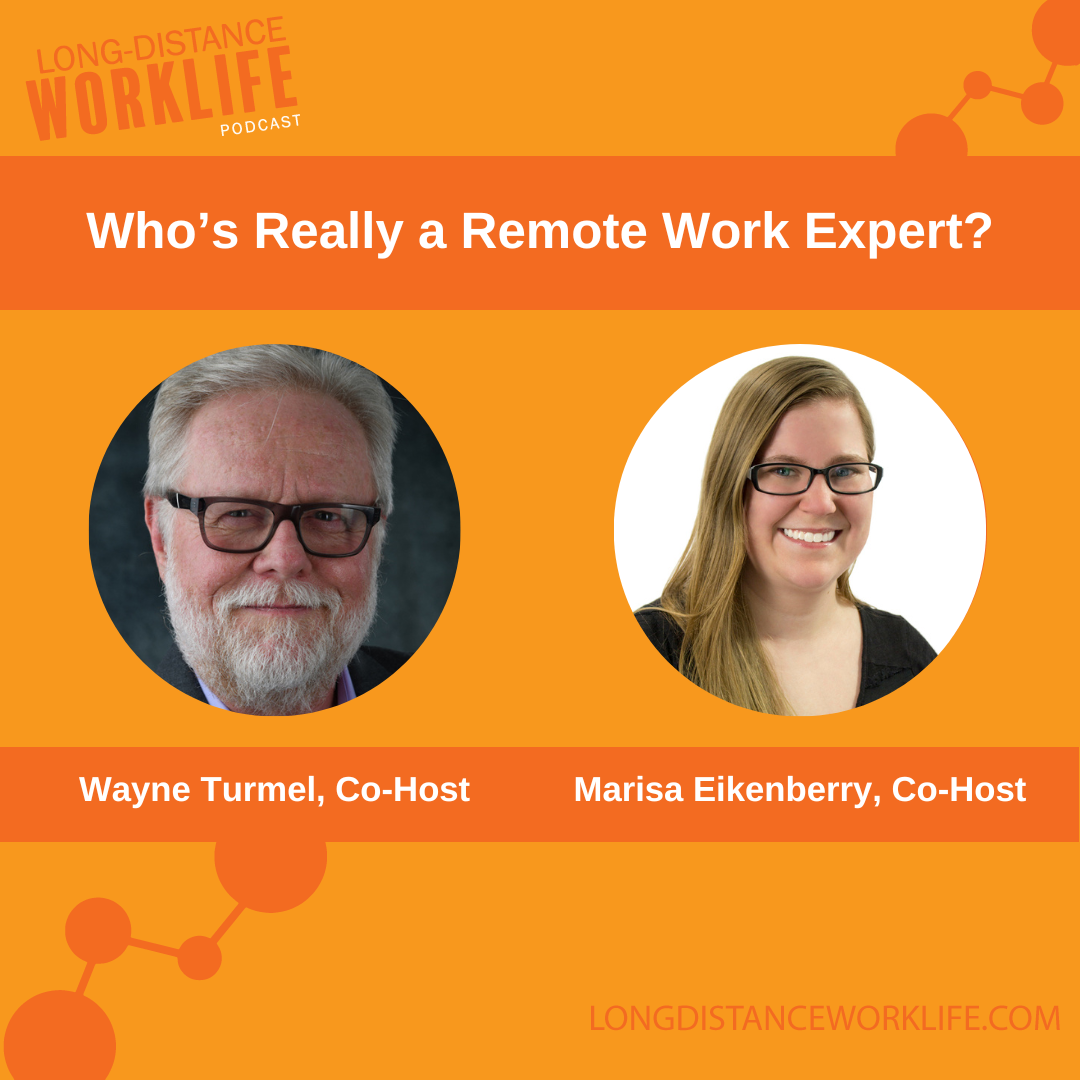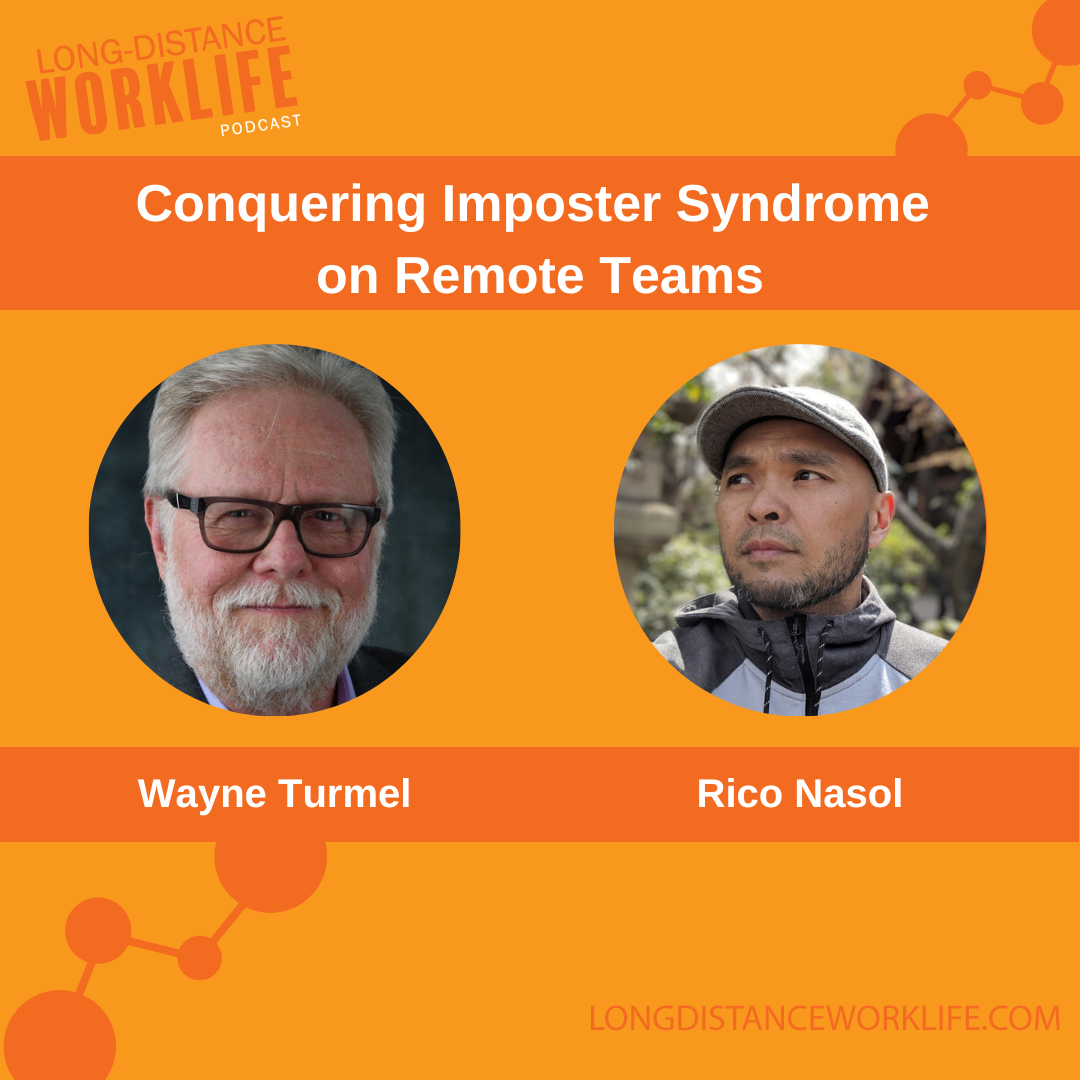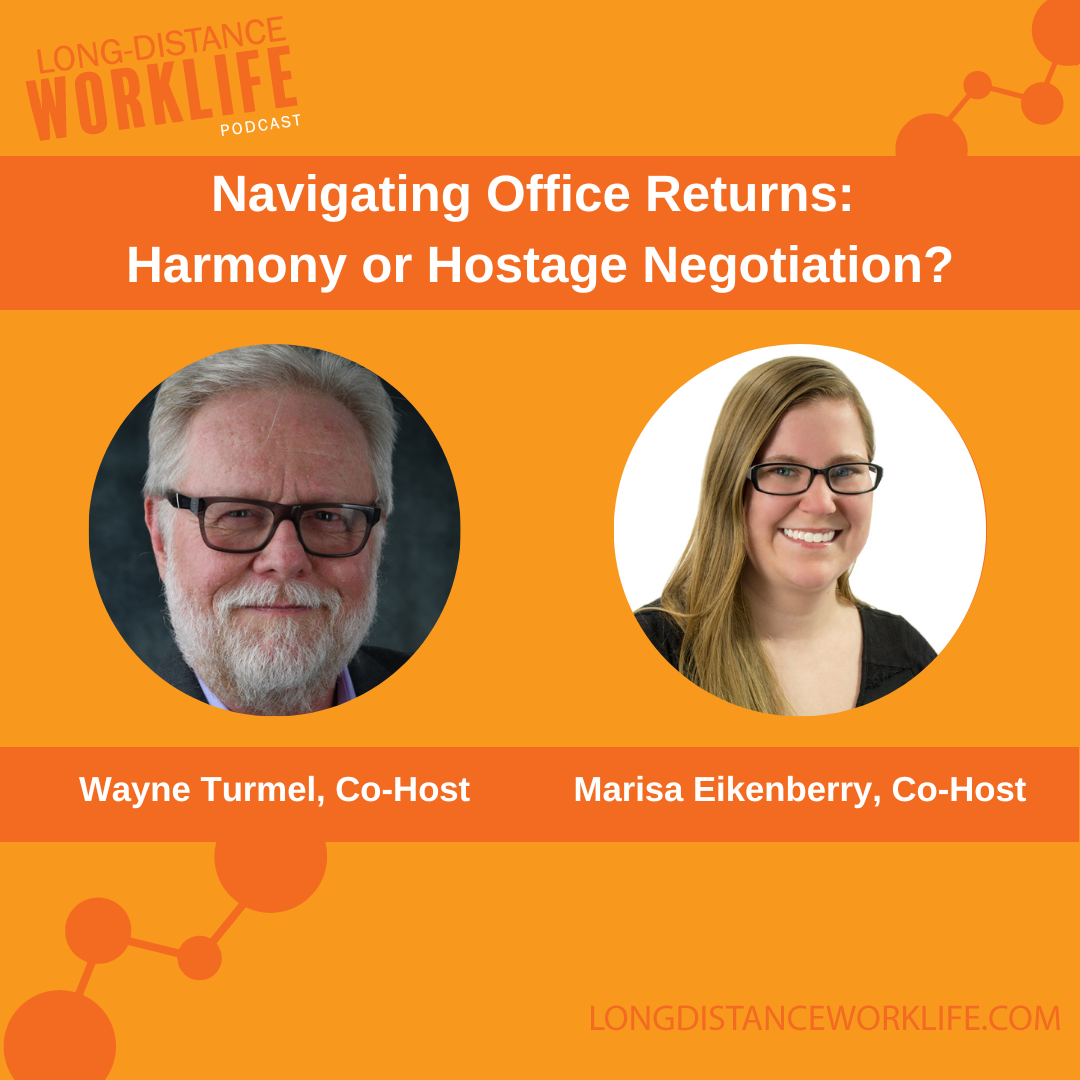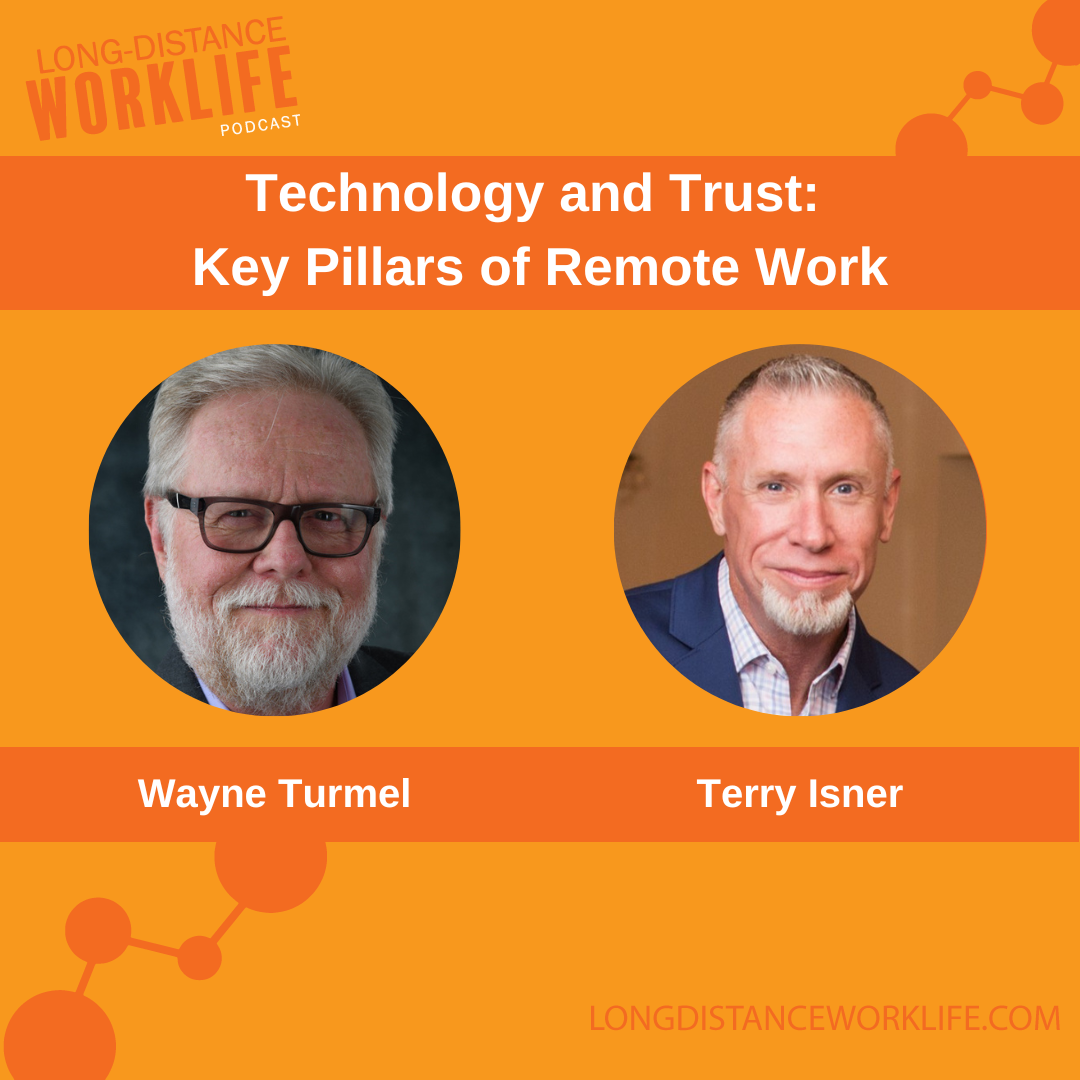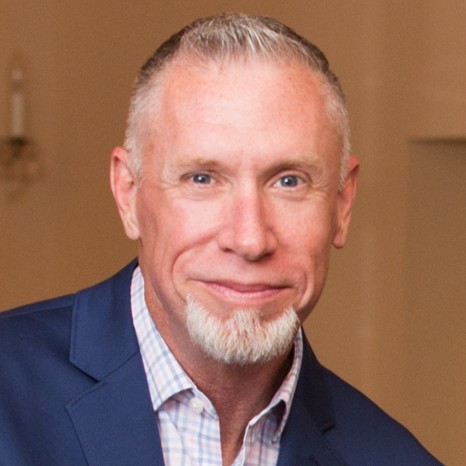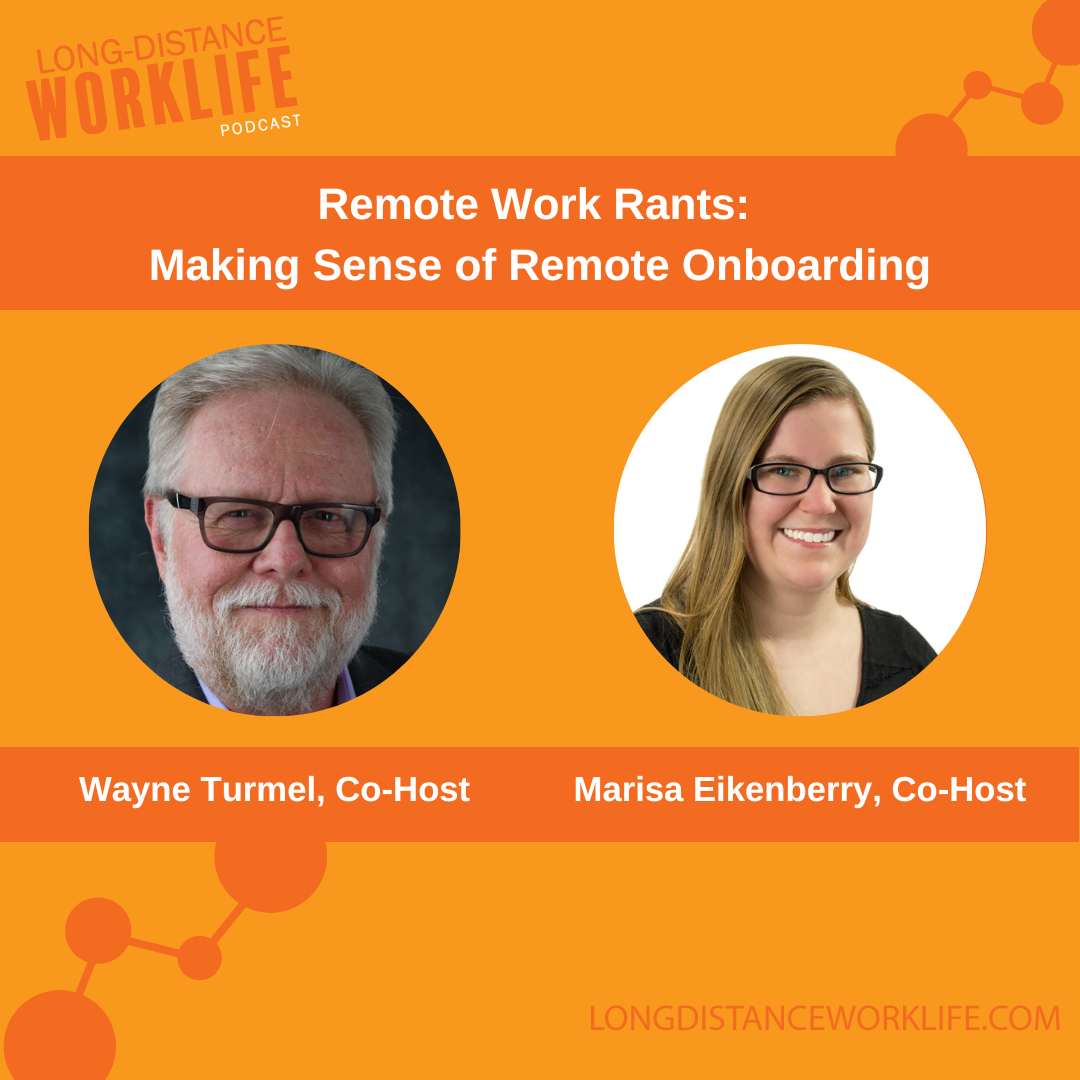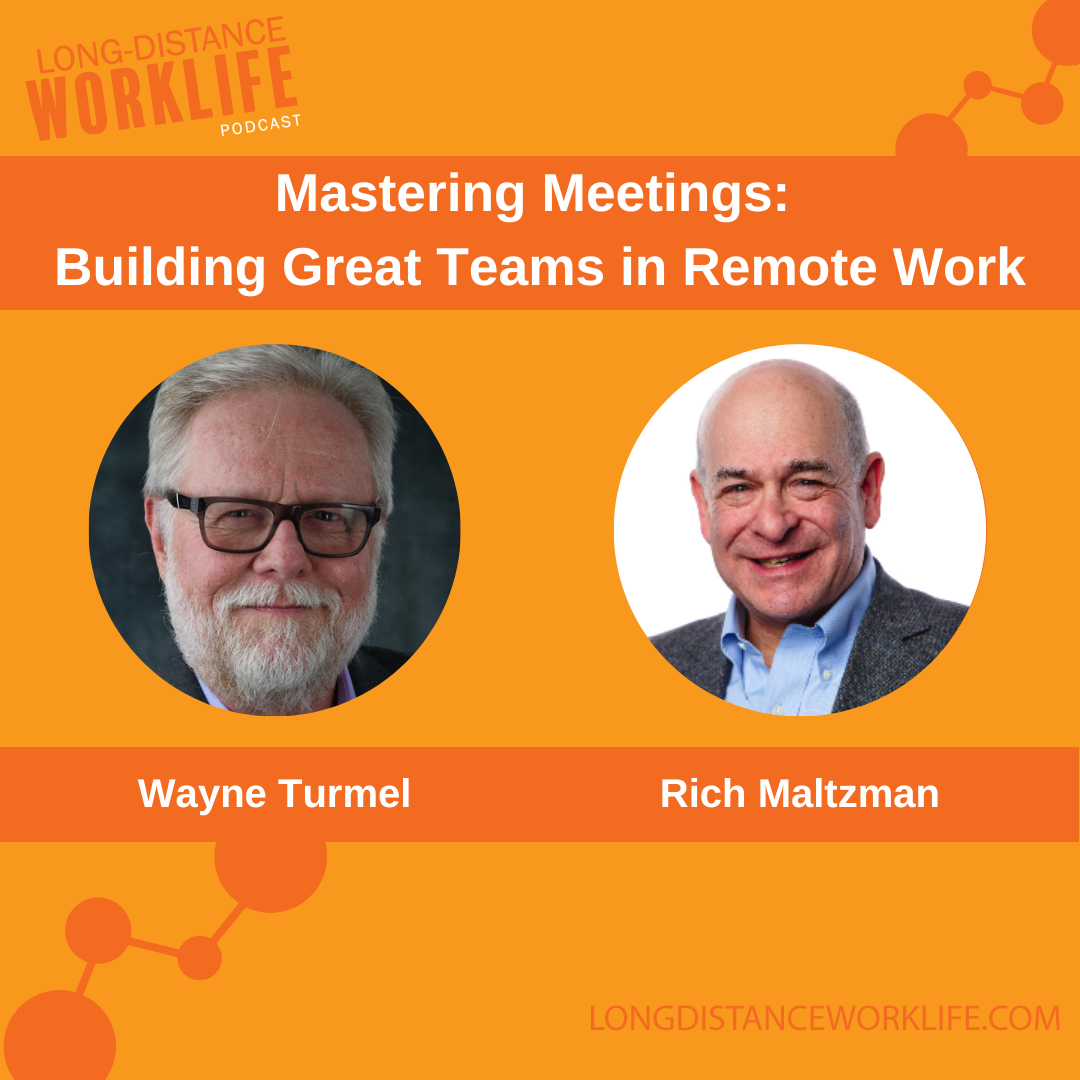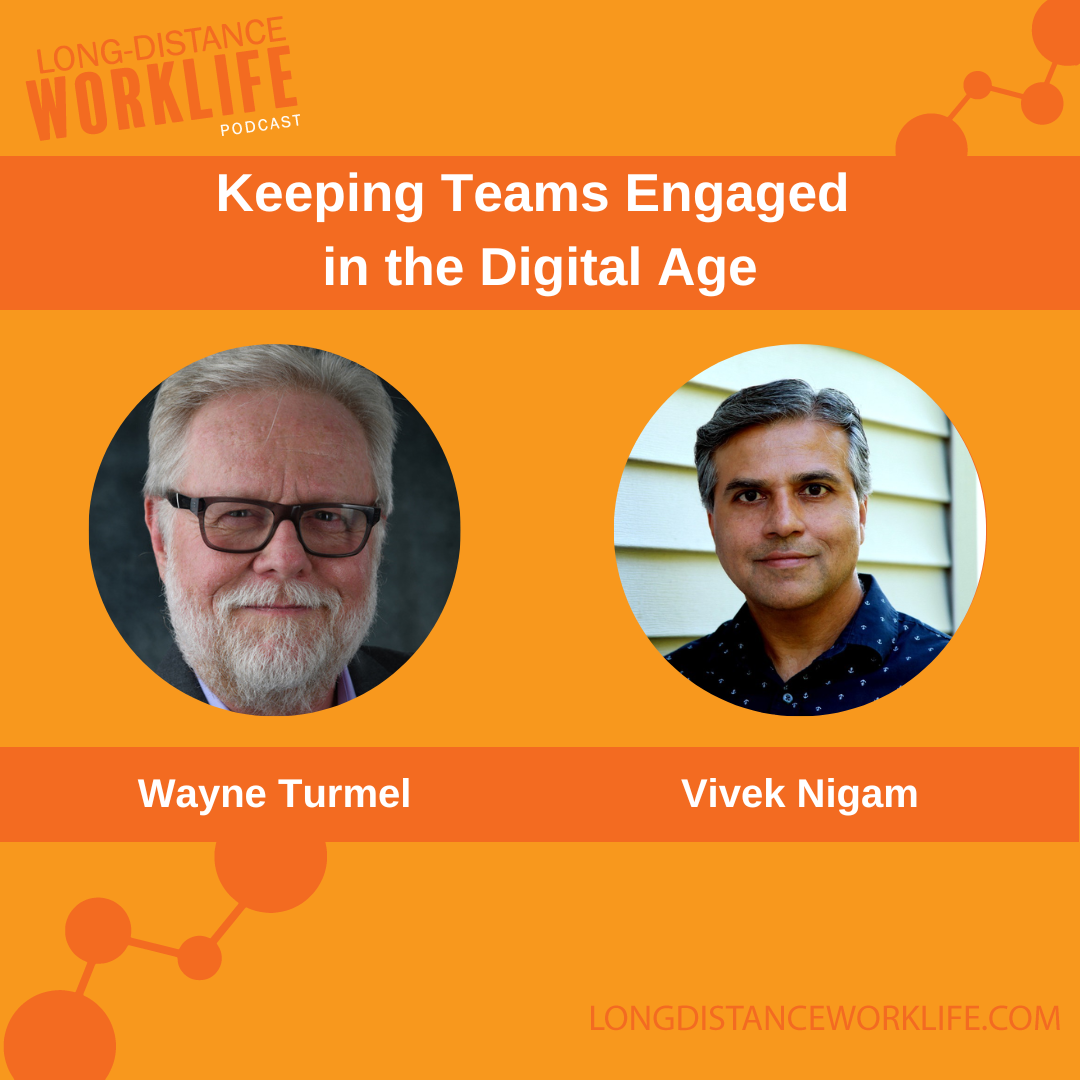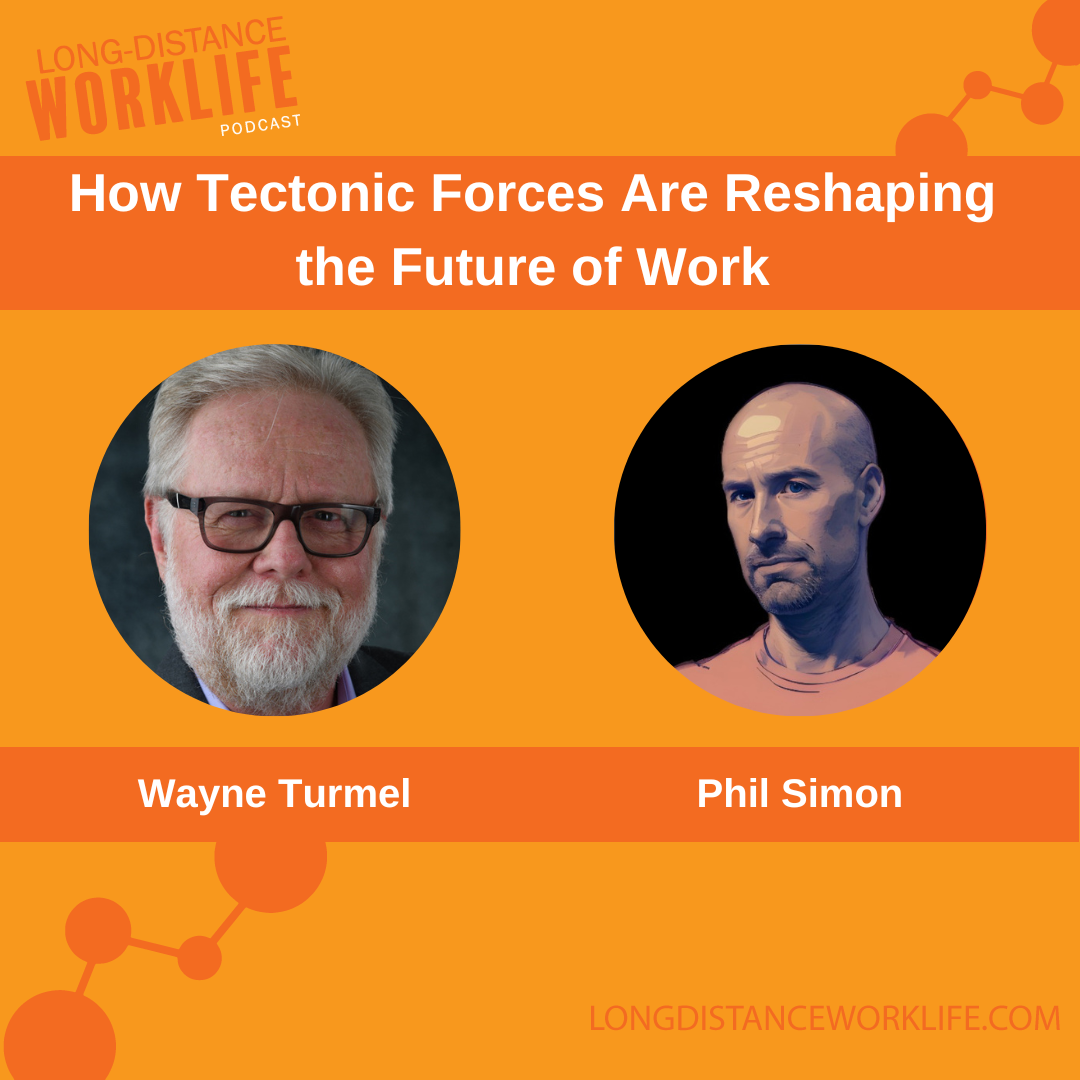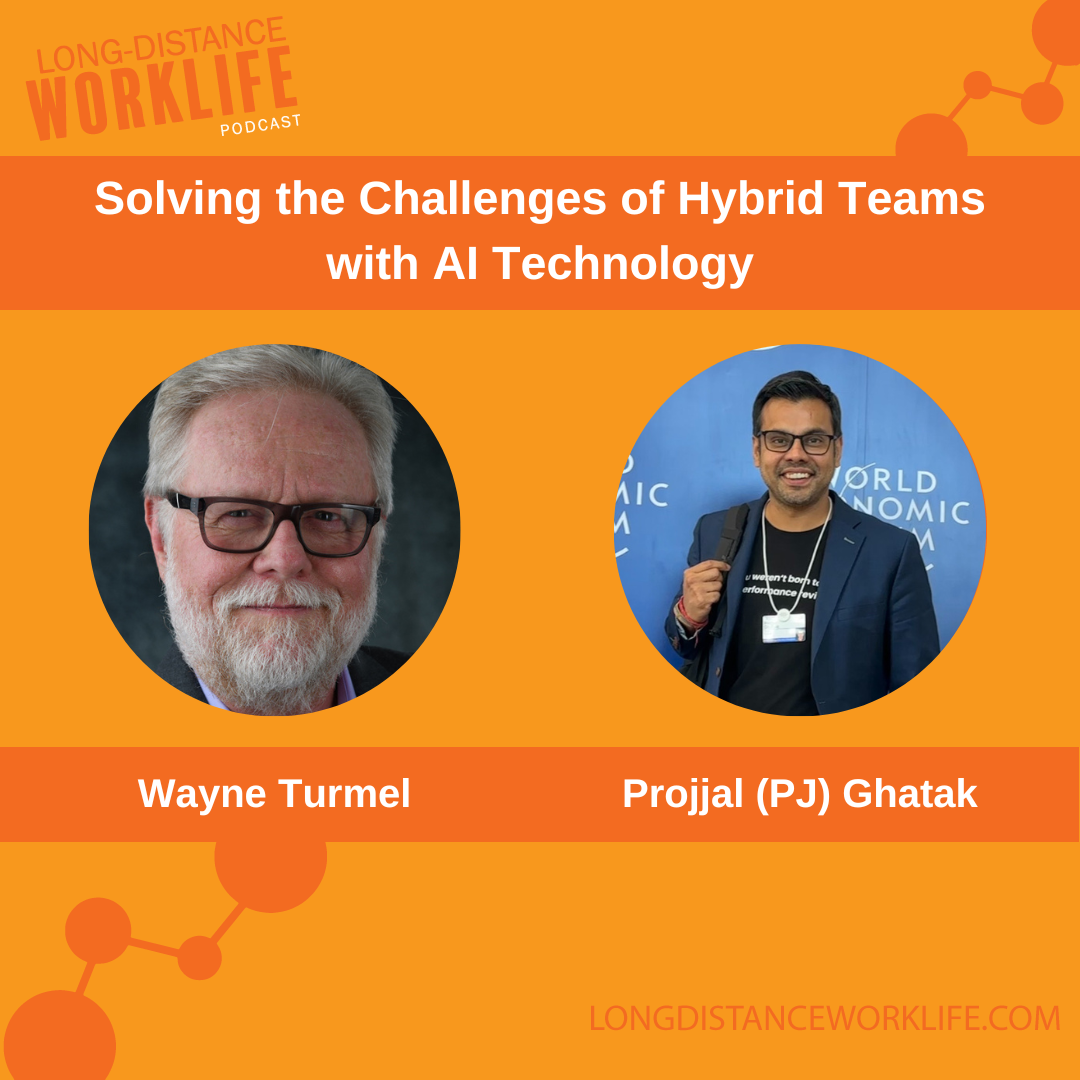Marisa Eikenberry and Wayne Turmel explore the intricacies of remote work expertise. Wayne, a seasoned professional in the field, shares his candid views on the skepticism surrounding the term "expert," the evolution of remote work expertise, and offers practical advice for discerning true expertise in this domain. The episode is a must-listen for anyone navigating the remote work landscape, seeking to understand the blend of skepticism and wisdom in identifying genuine expertise.
Key Takeaways
1. Understand the History of Remote Work: Recognize that remote work has a long-standing history and is not just a recent trend.
2. Question Titles and Expertise: Be skeptical of self-proclaimed experts, especially those with pretentious titles.
3. Evaluate Credibility: Check the background and track record of a professional claiming remote work expertise.
4. Beware of Zealots: Be cautious of those who are overly zealous about remote work; true expertise is balanced and objective.
5. Look for Practical Solutions: Seek out experts who focus on practical help and realistic approaches to remote work.
6. Utilize Resources: Explore available courses and resources to deepen your understanding of remote work leadership and management.
00;00;07;26 - 00;00;19;11
Marisa Eikenberry
Welcome back to the long distance work life, where we help you live, work and thrive in remote and hybrid teams. I'm Marissa Eikenberry, a fellow remote worker. And joining me is my co-host and remote work expert, Wayne Jamal. Hi.
00;00;19;13 - 00;00;29;24
Wayne Turmel
Hello, Marissa. How are you? And hello, everybody listening? It sounds sometimes like I'm ignoring you and I'm not, so. Hello? I'm listening.
00;00;29;27 - 00;00;50;20
Marisa Eikenberry
I'm doing great. And, you know, I'm just so excited about this topic today because I think it's gonna be really interesting for our listeners. May not be something they've really thought about before, but we're going to tackle it today. So every episode I introduce you as a remote work expert and believe it or not, we actually get snarky comments about this on our videos and our clips all the time.
00;00;50;23 - 00;01;08;04
Marisa Eikenberry
How can you be a remote work expert in something that's not been around that long? Now, for the record, and people who have listened us for a while already know that remote work has been around for a very long time. And if you are not aware of this, I would highly encourage you to listen to one of our first episodes titled When Did Remote Work Start, which I will have a link to in the show notes.
00;01;08;06 - 00;01;13;05
Marisa Eikenberry
But Wayne, let's start with the basics. How do you define a remote work expert?
00;01;13;07 - 00;01;40;27
Wayne Turmel
Yeah, and total transparency. I cringe a little every time you introduce me as an expert. I am naturally a cynic and I'm kind of a that try to be a skeptic. And I sometimes go over the line to cynicism. The minute any time somebody introduces themselves as an expert, my radar goes off and the more pretentious the title, the more it goes off.
00;01;41;00 - 00;02;09;21
Wayne Turmel
When I look at somebody's LinkedIn title and they claim to be a guru, alarm bells ring, things go crazy. I just go, no, no, no, no, no, no, no. That and living in a time just in society in general, when expertise is kind of frowned on and nobody is really an expert and, you know, yeah, that's a nice Ph.D. you've got I've got this guy on YouTube who says.
00;02;09;23 - 00;02;10;17
Marisa Eikenberry
Right.
00;02;10;19 - 00;02;23;24
Wayne Turmel
So there is a kind of general skepticism that I share to a degree. That being said, some people know more about other people.
00;02;23;26 - 00;02;25;25
Marisa Eikenberry
Right. That's going to be true for everything.
00;02;25;28 - 00;02;44;17
Wayne Turmel
Right. And if that is the case, then I suppose I am on the expert side of the spectrum. This is a topic that I started writing about in 2005 or six.
00;02;44;20 - 00;02;47;13
Marisa Eikenberry
So that's when I tell you I was a freshman in high school.
00;02;47;15 - 00;03;13;13
Wayne Turmel
And that's when I pulled the dagger out of my heart and tried to continue missing a beat. You know, I started investigating this thing called WebEx. And what did it mean back in 2005, 2006? And so you know, I have written, depending on how you counted, six books and multiple chapters and magazine articles and been doing the research and all of that stuff.
00;03;13;13 - 00;03;36;21
Wayne Turmel
So if I have to defend my status as somebody who knows more about this, then the defense rests. Your Honor. Right. That being said, that being said, it's a constantly evolving field. And this is the other thing is, as I tell people, I do all I read the research and follow the stuff and listen to a lot of nonsense.
00;03;36;25 - 00;04;03;06
Wayne Turmel
So you don't have to. And I run it through whatever filter I can to kind of separate the wheat from the chaff and present in as logical and and pertaining and kind of easily digested as possible, presented to people for them to then make their own decisions with. So, you know, that's as defensive as I get about the title.
00;04;03;08 - 00;04;10;11
Wayne Turmel
That being said, it goes back to anybody. Anybody who calls himself a guru probably isn't.
00;04;10;13 - 00;04;33;04
Marisa Eikenberry
So let's get into that a little bit. Like we've established. You've been doing this for a really long time. You have a bunch of expertise. You know what you're talking about, expert title or not. But how can how can your layperson, your normal person, determine whether somebody is a true remote work expert like yourself or they just started doing this in March of 2020?
00;04;33;07 - 00;04;36;25
Wayne Turmel
Well, you know, just go on their LinkedIn profile.
00;04;36;27 - 00;04;37;12
Marisa Eikenberry
That's true.
00;04;37;16 - 00;05;04;20
Wayne Turmel
Seriously, I am serious. Is a heart attack go under LinkedIn profile and see what their track record. What if they were a manager at Arby's March of 2020 and then suddenly they were an expert in remote work? A little skepticism may be appropriate. So, you know, what is their experience? What is their background? What are we doing? It doesn't take much to check that.
00;05;04;23 - 00;05;06;11
Marisa Eikenberry
Yeah.
00;05;06;14 - 00;05;09;28
Wayne Turmel
The other thing and this one is more controversial.
00;05;10;00 - 00;05;10;12
Marisa Eikenberry
I love it.
00;05;10;12 - 00;05;20;10
Wayne Turmel
And I have friends who are going to hate me. The more of a zealot they are, the less I take them at their word.
00;05;20;12 - 00;05;21;16
Marisa Eikenberry
Okay, so why is that?
00;05;21;18 - 00;05;47;12
Wayne Turmel
Here's the thing. And we often, Kevin and I often get lumped into it when they give lists of people who are thinkers about remote work. We're often on the list, and we are not the most zealous specializing. The future is remote work and death to the office and you know, all of that stuff. That's not where we are.
00;05;47;12 - 00;06;16;08
Wayne Turmel
We think there are incredible advantages to remote work. We think that the trend is certainly moving that way. But the people who are zealots, the people who say that there is no use whatsoever, there is no need for people to ever get together physically. All of your social, biological, nourishing needs can be met through through Zoom. I tend to look at that skeptically.
00;06;16;11 - 00;06;17;01
Marisa Eikenberry
That makes sense.
00;06;17;04 - 00;06;40;22
Wayne Turmel
Our approach is these things are happening. They are certainly trends. We need to be aware of it. And like all technology and all work trends, where does it make sense for my company, for the things that I do, for the work I choose to do? Where does it make sense and where can I leverage it, and where are the pitfalls and things that you need to watch out for?
00;06;40;22 - 00;07;02;28
Wayne Turmel
And that's where I like to spend my time. I have no interest in helping Silicon Valley companies get their next new thing launched right. I am a real skeptic about technology, and so I am not an early adopter. I am not first one over the fence, and I don't think most people should be.
00;07;03;00 - 00;07;06;29
Marisa Eikenberry
Right. We've talked about this actually in our episode not that long ago.
00;07;07;00 - 00;07;34;23
Wayne Turmel
Yeah. So I think that and any time you are an evangelist or a zealot for something, your objectivity goes out the window. Yeah, you've gone in with a good vision of the truth, and your job now is to defend that as radically as possible. And so you tend to weed out information that doesn't fit your paradigm. That's in fact.
00;07;34;26 - 00;08;02;03
Wayne Turmel
And the fact that I use the word paradigm makes me cringe, but it's true. Yeah. And so I try to be objective. And at the Kevin Ikenberry group, our focus is not on changing the world in terms of upending business models. My job personally, is to help the individual person get through the workday with some shred of sanity and dignity.
00;08;02;05 - 00;08;03;21
Marisa Eikenberry
Right. Right. We just want to.
00;08;03;21 - 00;08;27;22
Wayne Turmel
And if and if remote work helps you achieve that and you're a better person, here's how we can help. And if you have to go into the office every day, here are some things that you might want to think about that might save your sanity and your dignity. So I understand, you know, the skepticism of people online who go remote work expert.
00;08;27;25 - 00;08;37;22
Wayne Turmel
You know, anybody can call themselves that. Well, yeah, they can. And I challenge you as listeners to the dose of skepticism.
00;08;37;25 - 00;08;56;24
Marisa Eikenberry
So, I mean, there's lots of people that are getting the titles, some of which are given to them and some of which are they're trying to make themselves, I guess, is the point we're trying to make. But so but specifically, going back to you, how has your role as a remote work expert evolved over time, especially in the last four years?
00;08;56;24 - 00;08;58;22
Marisa Eikenberry
I mean, a lot of stuff has changed.
00;08;58;24 - 00;09;22;24
Wayne Turmel
Yeah, I mean, if I go back to when I first started thinking about this, right, was June 26, I was teaching traditional presentation skills and I remembered the moment somebody said to me, Wayne, this standing in front of the room stuff is great, but I only talk to real people like twice a year. I work remotely and there's this thing called WebEx, and that's what I'm using.
00;09;22;24 - 00;09;55;10
Wayne Turmel
And I started investigating at the time there were 120 little plankton level web meetings and some WebEx was the Mack daddy of them all. But I became fascinated. I knew the trend was going to continue, and so I became fascinated in that. I started a company that taught people how to do webinars and how to present online, and I got asked more and more about the day to day work, not just the presentations, but how do you run a team and how do you do that?
00;09;55;13 - 00;10;20;05
Wayne Turmel
Kevin and I had known each other for a long time. We created a remote leadership institute, so I had gone from almost strictly presentation and communication skills to teams and leading them in a remote environment. And then the last year and some people have noticed this, some people haven't. The Remote Leadership Institute brand after COVID kind of went away.
00;10;20;06 - 00;10;42;29
Wayne Turmel
It still exists, but it's inside the greater Kevin Eikenberry group because the world has changed the the world of leadership, remote leadership. Most people now no longer look at it as a separate thing. It's part of the job. If you are above first line supervisor, odds are you're going to have at least one member of your team who doesn't work where you do.
00;10;43;04 - 00;10;44;13
Marisa Eikenberry
Yeah, and you have to prepare for that.
00;10;44;16 - 00;11;11;02
Wayne Turmel
And you have to be able to deal with that and include them in the team. And so the role of remote work in our getting our jobs done has morph and hope. And we like to believe that this is true. We have kind of kept up with that. And again, I have read more nonsense and taken part in more free samples of software and done all that stuff than any human being ought to.
00;11;11;04 - 00;11;59;04
Wayne Turmel
You probably can tell from my white beard and white hair, but I am 42 years old. No, look what it has done to me. So, you know, my has changed. And I think most human beings, if they are wise, they are open to changing as the world changes. I think that if you look at what Kevin and I teach in long distance leader London's team, one year team mate, all of our blogs, all of our courses, it's that while things are changing and we need to be aware of and adjust to and be mindful of the changes that come to us, the core of leading people, of getting work done, of having a leadership mindset,
00;11;59;06 - 00;12;12;10
Wayne Turmel
is really evergreen and it's the details and nuances that change. But those changes and nuances can drive you mad if you are unaware of them and can't deal with them.
00;12;12;12 - 00;12;30;04
Marisa Eikenberry
Right? So I guess, you know, for our leaders and our managers that are listening, you know, what are some common challenges that remote work experts actually help businesses employees overcome? I know you've talked about a little bit of them as we've gone, but like really specifically, like what? What do you help with? What do we think?
00;12;30;09 - 00;13;03;17
Wayne Turmel
Like the big thing, I think is helping us understand how being remote changes us, how we interact with each other. There are a few things. One is that we were raised from birth as face to face, nose to nose, visual in contact, communicating beings. That is our natural default. When we are not doing that, we have to rely on our higher functions.
00;13;03;20 - 00;13;30;12
Wayne Turmel
We have to rely on trust. We have to communicate quite effectively so that I don't have to stand at your desk and watch you do your job. Right. That's something that should be happening anyway. But with the rise of remote and hybrid work, the ability to micromanage the idea of command and control, which has been evaporating as we've evolved as a species, continues to do that.
00;13;30;12 - 00;13;59;11
Wayne Turmel
Well, not everybody's comfortable with that. Command and control is a very lizard brain, very natural response, right to pressure and a task and and all of that stuff. Remote work, hybrid work is a natural extension of expanding that approach in our courses and in our Long Distance Leader series, The first module, and we do this as a standalone course as well.
00;13;59;12 - 00;14;27;16
Wayne Turmel
Shameless plug is how leaders create and manage remote and hybrid teams. And really we introduce three models that are crucial to that mindset. The first is why does this feel so weird? And we have what we call the remote leadership, the three year model. There's a trust model. How do we build trust if something is happening? You know, can we apply this model and figure out what the problem is?
00;14;27;18 - 00;15;04;10
Wayne Turmel
And then the third one is choosing the right technology for the right communication task, which is huge in remote and hybrid work. If you are sending an email rather, or a text, rather than having the conversations you need to have, that is the root cause of a lot of problems, right? And I think that's the work that we do most effectively is we get people to say, if you have a leadership mindset, if you want to have a leadership mindset and you should, what are the nuances?
00;15;04;10 - 00;15;25;05
Wayne Turmel
What are the changes? What are the circumstances that require adjustments to that? And I think at the end of the day, that's not what makes us a zealot because not all work can or should be done remotely. Not all organizations function best that way. There are plenty who do if they do. This is how you need to approach it.
00;15;25;11 - 00;15;50;14
Wayne Turmel
If you are going to be hybrid. These are the nuances that you need to take into consideration. And, you know, I think that's what we bring to the party. I think if there's an expertise to it, that's what it is. So I hope that answered your question and I hope it answered the question for the listeners, because I know we we seldom talk about what we actually do, what our work is.
00;15;50;16 - 00;15;56;27
Wayne Turmel
We try to keep it more general and but specifically, sometimes you got to know that stuff.
00;15;57;03 - 00;16;15;08
Marisa Eikenberry
Right. Yeah. We so classes, we have to pay the bills, right. I have my one last question before we end the show here. But what advice would you give to leaders of managers who would like to better understand how to leverage this kind of expertise of remote work professionals such as yourself and us? I think at Mike Berger.
00;16;15;10 - 00;16;33;18
Wayne Turmel
Yeah, and there's a lot of stuff out there and a lot of it's very good. There are a lot of very talented people. There are people we have on this show as guests who are wonderful people and they should make a living and you should hire them if that's what you want to do. I think it's like anything else, understand the first principles.
00;16;33;24 - 00;17;09;09
Wayne Turmel
What does your organization, what is the work that needs to be done? And you are the best person to know that, right? But knowing that doesn't mean that you are 100% comfortable with what's next. Some people have no idea, and they're kind of paralyzed. Some people think they know, but some validation would be nice to make sure that we're on the right track and other people are out on that path and maybe it's not going the way they want it to.
00;17;09;09 - 00;17;13;24
Wayne Turmel
And I think those are the circumstances where you bring in other people.
00;17;13;28 - 00;17;31;02
Marisa Eikenberry
Yeah, that totally makes sense. And Wayne, I know earlier you were talking about our Long Distance Leadership series. And for any of our listeners, listeners who are interested in that, you can go to Kevin Eikenberry dot com slash LDL s to find out more about those classes and what's coming up and.
00;17;31;02 - 00;17;41;20
Wayne Turmel
Absolutely and those class football as you know an open enrollment series for individuals or we're happy to talk to you about bringing it in-house to your company.
00;17;41;23 - 00;17;58;17
Marisa Eikenberry
And listeners. Thank you so much for listening to the long distance work life for shownotes transcripts and other resources. Make sure to visit long distance work life dot com. If you haven't yet, subscribe to the show so you don't miss any future episodes. And while you're there, we sure like and review This helps us know what you love about our show.
00;17;58;20 - 00;18;12;13
Marisa Eikenberry
Feel free to contact us via LinkedIn or email with the links in our show notes and let us know you listen to this episode or even suggest a topic for one night to tackle in a future episode. We'd love to hear from you. Thanks for joining us. And as Wayne like to say, don't always get too down.
Timestamps
00:00 Introduction
00:29 Debating the Term 'Expert'
01:13 Wayne's Perspective on Expertise
05:10 Remote Work Zealots and Objectivity
06:17 Challenges and Solutions in Remote Work
08:58 Wayne's Remote Work Journey
12:30 Addressing Common Remote Work Challenges
17:31 Concluding Thoughts
Related Episodes
Additional Resources
- Learn more about Wayne Turmel
- Email Wayne Turmel
- Connect with Wayne Turmel on LinkedIn
- Learn more about Marisa Eikenberry
- Email Marisa Eikenberry
- Connect with Marisa Eikenberry on LinkedIn
- Purchase a copy of The Long-Distance Leader
- Purchase a copy of The Long-Distance Teammate
- Purchase a copy of The Long-Distance Team
- The Kevin Eikenberry Group
Order The Long-Distance Team
Remote leadership experts, Kevin Eikenberry and Wayne Turmel, help leaders navigate the new world of remote and hybrid teams to design the culture they desire for their teams and organizations in their new book!


